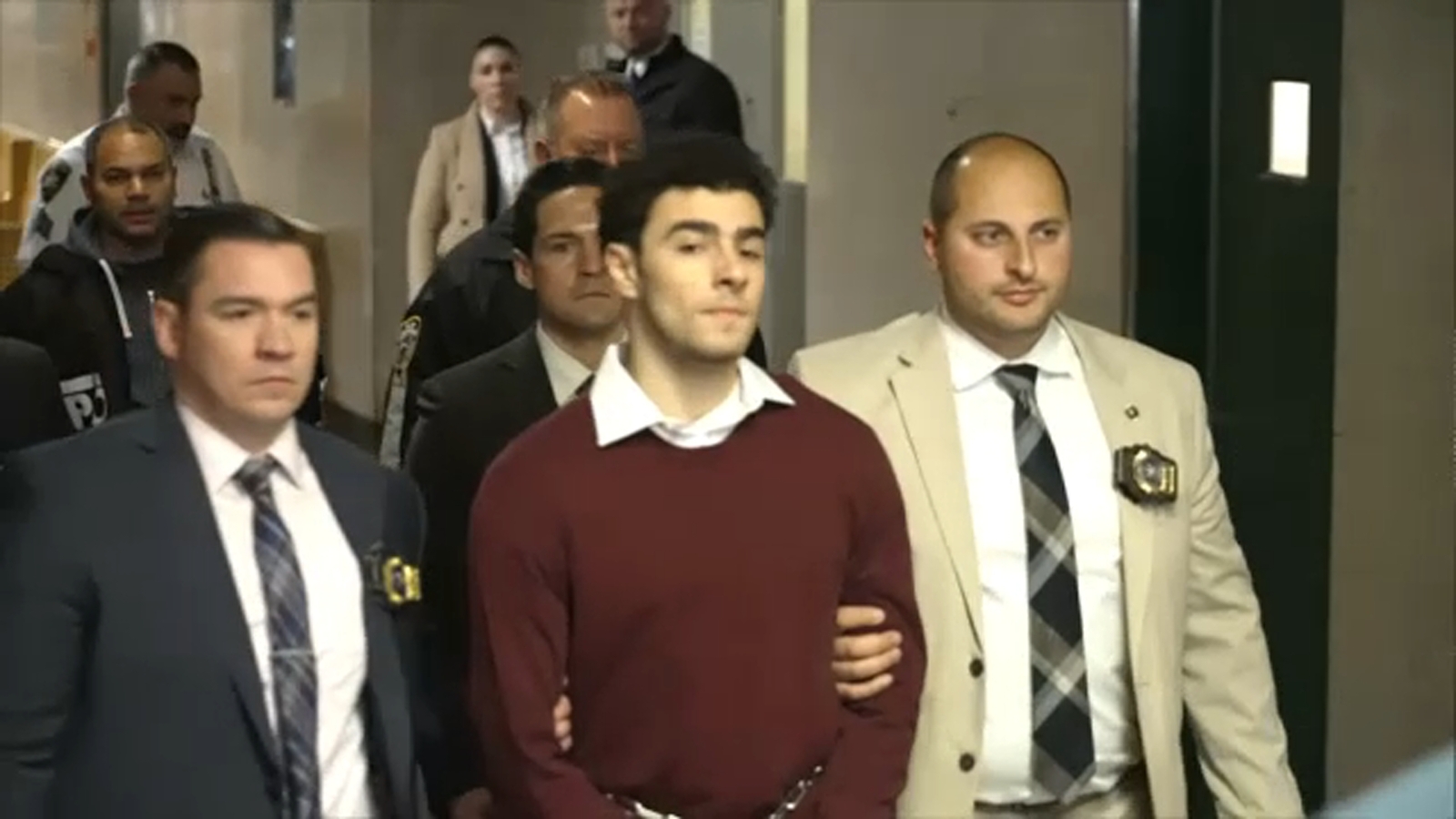Dr. Padma Sripada doesn’t buy the story that the person who took $75K from her is a changed man.
The 56-year-old primary care physician from Albany, New York, is one of more than 800 victims defrauded by Nightingale Properties CEO Elchonon “Elie” Schwartz, who is set to be sentenced for his crime Monday afternoon in an Atlanta courthouse.
Prosecutors recommended that a judge sentence him to roughly seven years in prison, saying he has been cooperative after admitting to embezzling $63M raised from crowdfunding investors and meant for two commercial real estate deals, instead spending most of it on watches, art and trying to plug financial holes in failing properties.

Bisnow/Jarred Schenke
Andrew Doyle is one of more than 800 investors who were defrauded by Elie Schwartz via the CrowdStreet platform.
The maximum sentence is 20 years. Schwartz is asking for probation, claiming his ambitious dealmaking got out of hand and he is committed to prayer, therapy and being a better person.
“If he doesn’t return the money to the investors, I think he should stay in jail. He’ll just come out and do the same thing all over again,” Sripada said. “Cooperation is one thing, but where’s the hard cash that’s disappeared?”
Nearly two years after Schwartz’s scheme exploded into public view, the sentencing represents a chapter of the scandal closing. The Brooklyn-born investor, who pleaded guilty in February to one count of wire fraud, will have to stand in front of a judge and answer for his actions, which brought an ignominious end to a nearly two-decade-long career of buying and selling office towers.
Bisnow spoke to more than a dozen people who put their money into Schwartz’s deals through the CrowdStreet crowdfunding platform. Some invested the minimum of $25K, while others invested more than 10 times that much. Doctors, nurses, a candymaker and retirees were all victimized, and many are frustrated at the recommended leniency.
Roughly 13% of these investors’ money has been returned to this point, and many have expressed doubt that they will be made whole, despite the government’s promise of restitution and an independent trustee being tasked with recouping their investments.
That trustee, Anna Phillips, has spent nearly two years tracing the money that was taken and negotiating its repayment. Her team is still battling with Schwartz in bankruptcy court over the sale of his assets, even days before he is set to be sentenced.
“I feel like this guy is somehow going to get an out-of-jail-free card,” said Craig Leva, the owner of a Chicago-based confectionery manufacturing company who put $250K into the failed Atlanta Financial Center deal. “It feels like it’s not going to stick. He’s too wealthy and connected to actually be sitting in some jail for the next bunch of years.”
In addition to speaking to Schwartz’s victims, Bisnow interviewed former federal prosecutors and reviewed filings in his criminal case as well as bankruptcy and state court records to understand how and when these investors might be fully repaid.
His plea deal included a requirement that he pay full restitution, but he has already signed a legal settlement to repay investors. That settlement was struck with Phillips in October 2023, but he defaulted less than seven months later. With less than a fifth of the money repaid, it remains unclear how the balance will be recouped.
The Justice Department’s Financial Litigation Unit typically enforces restitution by liquidating assets, a process that can take years. But because Phillips has already been engaged in recovery in bankruptcy court, the federal government is more likely to keep those duties with the trustee, said Joy Odom, a former assistant U.S. attorney in Georgia and a partner at Bryan Cave Leighton Paisner.
“I don’t expect that she will lose control,” said Odom, who isn’t involved in the case but reviewed it at Bisnow‘s request. “[Prosecutors] are going to do what makes the most sense in making the victims whole.”
But those victims say Schwartz is still dodging accountability, pointing to the fact that he has refused to leave the Manhattan penthouse he previously agreed to sell. None felt a sentence less than half of the maximum penalty was fair, and many said they felt insulted at the prosecutors’ sentencing memo that recommended a shorter sentence because Schwartz has been cooperative.
“I’ll give my $3,500 I got back just to see him do 20 years,” said Todd Dean, a 70-year-old retired animal healthcare executive who put $25K into Schwartz’s failed deals.

Nightingale Properties CEO Elie Schwartz
‘This Is A No-Brainer’
Schwartz’s plea deal is a bookend to a scandal that rocked the real estate crowdfunding world in 2023 and damaged the CrowdStreet brand, one of the most popular online crowdfunding platforms to emerge since real estate crowdfunding became legal through a 2012 act of Congress.
Schwartz used the CrowdStreet platform in May 2022 to raise $54M to buy the nearly 1M SF Atlanta Financial Center office complex in Buckhead from Sumitomo Corp. Six months later, he raised $8.8M to renovate the Lincoln Place building in Miami Beach.
For many of the investors interviewed by Bisnow, the AFC offering was a potential gold mine — the ability to cash in on a major office complex in a major metropolitan area being sold at a steep discount. It was the kind of deal that rarely, if ever, is presented as an opportunity to small CRE investors.
“I put more money into this than my other offerings,” Sripada said, adding that she has so far received $13K back of her original investment. “It seemed like such a good deal. I was like, ‘Oh, this is a no-brainer.’”
CrowdStreet threw its full support behind the deal. It gave Nightingale its highest rating for a sponsor and blasted marketing emails touting the opportunity to invest alongside a developer with a $10B track record.
Nate Jackson and his wife, both pediatric nurses from Berkeley, California, didn’t even decide to invest in the AFC offering. They invested $250K in one of CrowdStreet’s managed funds, and CrowdStreet’s fund managers put $25K of the Jacksons’ money into Nightingale’s campaign.
“That’s almost at least a month and a half of work for myself just gone,” he said.
The equity the investors deposited through CrowdStreet wasn’t placed into third-party-controlled escrow but instead went directly into an escrow account Schwartz had access to. Schwartz knew he was forbidden from touching the money but did it anyway, his attorney wrote in a sentencing memorandum last week.
“This was a critical provision of the agreements, one which investors relied on, to protect their money and prevent exactly the kind of catastrophic loss which occurred here,” his attorney, federal public defender Colin Garrett, wrote. “Not only did Elie fail to honor that contractual obligation, but he knew going in that he was going to need to access that money to keep the deals afloat.”
But he didn’t just use that money to prop up his investment. He withdrew nearly all of it and spent it on luxury purchases, like a $120K Grönefeld 1941 Remontoire watch, as well as payroll expenses for other properties Nightingale owns.
He also spent $12M on stocks and options in various companies, including $6.4M in First Republic Bank stock “in an apparent attempt to bet on the bank when it was on the verge of collapse,” according to the Securities and Exchange Commission, which launched a civil lawsuit against Schwartz in February.
Neither deal ever closed. He was charged with wire fraud in December and pleaded guilty three months later.
Andrew Doyle, 48, was excited to invest in the Atlanta Financial Center. The building straddles a major highway, and he knows it well as an Atlanta-based real estate agent and investor. He also understands the risks — deals fall apart all the time, and investors lose money.
“I’m fine losing money,” said Doyle, who gave Schwartz more than $70K. “But a deal where it’s flat-out fraud, it eats me to death.”
‘He’s Never Going To Do 20 Years’
District Judge Steven Grimberg of the Northern District of Georgia has the ultimate discretion to determine how many years Schwartz will serve in prison.
Federal prosecutors, who maintained that his crime requires a “significant need for a meaningful term of imprisonment,” say the sentencing guidelines they follow call for between 78 and 97 months in prison, and they recommend Schwartz serve on the low end of that range since he has cooperated with them and lacked a criminal history.
Even though wire fraud carries a 20-year maximum sentence, Simon Gaugush, who served as a federal prosecutor for the U.S. Attorney’s Office for the Middle District of Florida from 2008 to 2019, said judges almost never issue sentences of that length.
“He will be punished just as severely with one count of wire fraud as if he had hundreds of counts of wire fraud,” said Gaugush, now a white-collar defense lawyer at Carlton Fields. “You can stack as many wire fraud counts as you can on this man, he’s never going to do 20 years.”

Bisnow/Brandon Elsasser
The Russell Federal Building and U.S. Courthouse in Downtown Atlanta, where Elie Schwartz will be sentenced Monday.
Louisiana-based neurosurgeon Dr. Peter Campbell invested $100K in the AFC deal, but he was one of the few to get his full investment back when he demanded a refund in the weeks before the misappropriation was revealed.
Still, Campbell remembers growing up with a boy who robbed a Circle K with a plastic gun and stole $61. He spent 15 years behind bars.
“This guy steals $52M, and he’s probably going to get less than eight years,” Campbell said. “I think there’s a disparity, but that’s more of a critique of the entirety of the justice system for white-collar crime. At the end of the day, I mean, clearly he misappropriated more money than most people make in five lifetimes.”
How long Schwartz stays in prison will depend on several factors: whether he cooperated with federal authorities, whether he has demonstrated remorse and his behavior since pleading guilty in February. Cooperation with federal prosecutors could especially give Schwartz a “very significant break” on his sentencing, said Odom, the former Georgia prosecutor.
An even greater factor in the judge’s sentencing discretion will be the claim made by 15 investors that they experienced “substantial financial hardship” as a result of their lost investments, Gaugush said.
In the government sentencing memorandum filed May 14, prosecutors said 15 victims claimed hardships such as losses to their retirements, being forced to take out student loans, downsizing homes and having to delay retirement. The DOJ did note that other factors beyond the loss of their CrowdStreet dollars factored into the hardship, and as accredited investors, they “could bear the economic risk of a potential loss of their investments.”
If Grimberg buys the argument that Schwartz caused significant hardship, he could issue a sentence longer than the DOJ is seeking.
“That is so huge for this case. That is the hill the defendant will die on,” Gaugush said. “That’s what they’re going to be debating. This is going to be huge for them.”
And Schwartz is remorseful, according to Garrett’s sentencing memo. He wrote that he submitted an “outpouring of letters” into the record that “shine a light on Elie from many different angles, as a friend, a father, a business partner, a community supporter, a congregant, an employer, a son and a brother.”
“Just as Elie has thrown himself into every project he has ever taken on, he is determined to make the victims whole and erase his debt, moral as well as financial,” Garrett wrote.
To date, that determination hasn’t led him to vacate the penthouse unit at 1 West End Ave., which Schwartz bought for $18M in 2018.
Even though it was put on the market last year for $19M, attorneys working with Phillips wrote in bankruptcy court filings that Schwartz, his wife and children continued to live there, preventing any genuine attempts at a sale. It has since been taken off the market.
Phillips, as trustee for the investors, sued in Manhattan state court to evict the Schwartz family in February, after the judge overseeing the bankruptcy case ordered them to vacate the premises. Schwartz argued in state court that he wasn’t properly served with the eviction notice, and that case is ongoing.
Schwartz’s attorney in the Bankruptcy Court for the District of Delaware claimed he shouldn’t have to leave the apartment because Phillips owed him 10% of the $3M payment he made in January 2024, the only money he repaid investors after the deals blew up. Judge Craig Goldblatt, who is overseeing the bankruptcy case, rejected that argument in court last week.
Goldblatt ordered the Schwartzes to leave the apartment by May 21 — two days after his sentencing hearing — or pay $10K a day in contempt fines.
“I don’t think that will play very well with the judge at all. [Schwartz] should have found himself a quiet little cottage to live in to sell the penthouse and give that money back,” Odom said. “Postplea, presentencing, I do think a judge is going to look at that.”
Elisha French owns a plumbing business in Dallas and invested $50K in the Atlanta Financial Center deal. He said Schwartz’s refusal to leave the penthouse feels “counterintuitive” for someone who is attempting to show the court he is a changed man and claims he is willing to do right by the investors.
“This seems to be one where it’s just, like, pure selfishness,” French said. “His actions, especially with the penthouse, to me, have shown he has not learned one single thing. And when he gets out, he’s going to do the same thing.”


